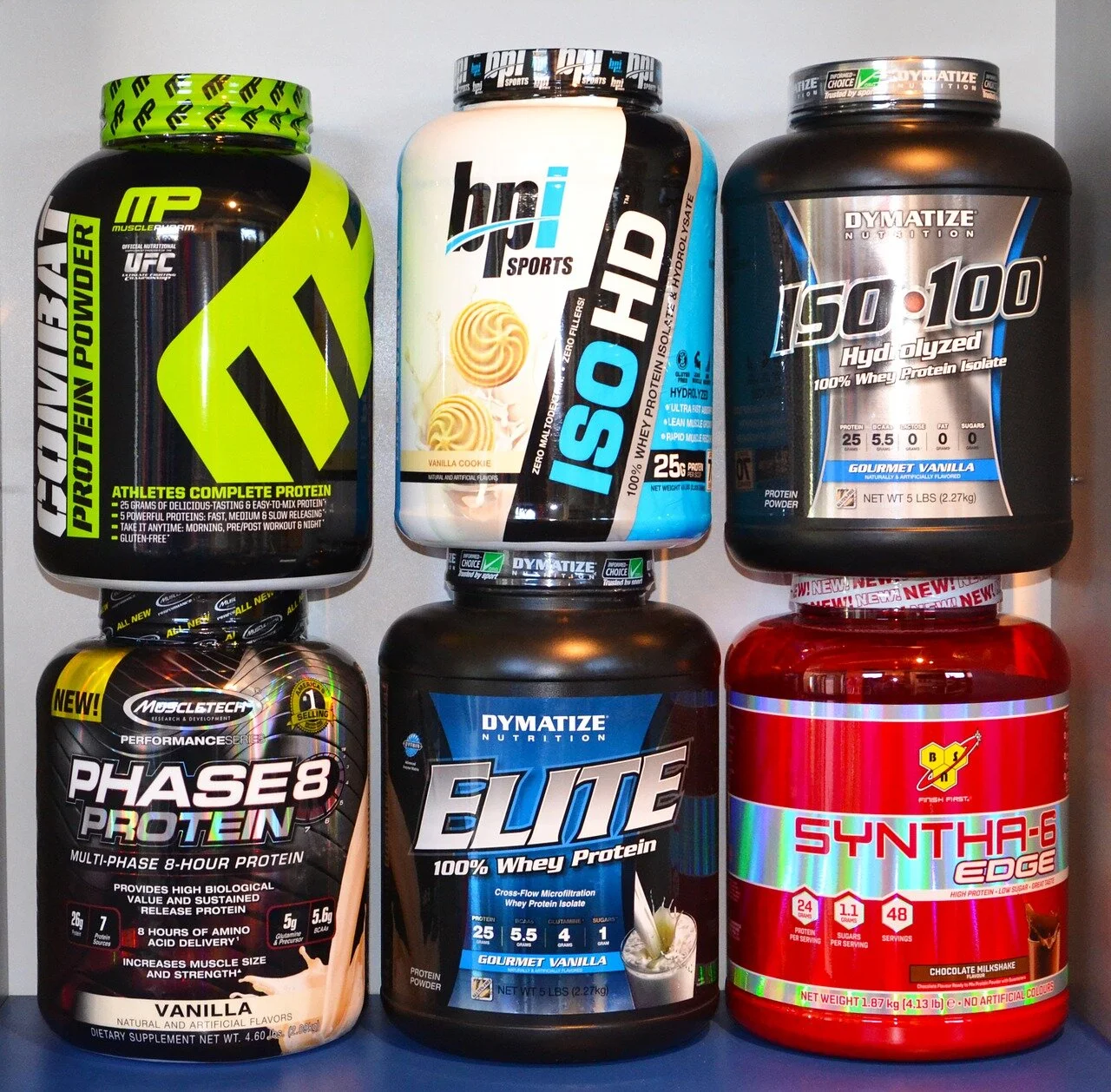Do you need protein powders?
Protein powders are big business and if you were to believe the Sport’s supplement industry, you’d think you needed to have a couple of scoops of this ‘miracle’ powder every day to help you build bigger muscles.
But do protein powders live up to the claims and do we really need them?
Why do we need protein?
Protein is an essential nutrient for health which is made up of amino acids. Amino acids are the building blocks for many of our body’s cells. There are 20 amino acids, 9 of which are classified as ‘essential’. This means they are unable to be made by our body and we must get them from the food we eat. Protein is necessary to build, maintain and repair tissue and to make hormones and antibodies. It is therefore, essential to support our growth and development. It also provides us with energy and helps us to feel fuller for longer.
What foods contain protein?
Protein containing foods include:
meat,
seafood,
poultry,
legumes (chickpeas, lentils, beans, soy etc),
eggs,
grains,
dairy,
nuts and seeds.
How much protein do we need?
It is recommended that men up to age 70 eat 64g of protein per day to support their health, and women up to age 70 eat 46g (unless they are pregnant or breastfeeding). Our protein requirements vary depending on our age, gender, activity levels, whether we have any specific medical issues or if you’re pregnant or breastfeeding. For example, a growing teenager, who is training at the gym or undertaking regular sport, is likely to need more protein than their dad.
While we all need to have some protein in our diet, we don’t actually need as much protein as many of us may think we need. Based on the results from the 08/09 National Nutrition Survey, the usual daily intake for men was 105g and women 71g per day (far higher than the recommendations!), with only about 2% of Kiwi adults weren’t getting enough protein.
While eating too much protein won’t be an issue for most people, it can cause issues for those with liver or kidney concerns. It can also lead to calcium leaching out of your bones or storing the extra calories as body fat, if the extra energy is not burnt off through physical activity. On the flip side, not getting enough protein can lead to muscle wasting, and impaired immunity or wound healing.
Do I need a protein powder or supplement?
Despite the powerful advertising from the supplement industry, which makes us all believe that we need to be using a protein supplement if we train at the gym, the reality is that most of us can reach our protein requirements from food alone.
For example, an average man’s protein needs could be met by eating the following :
1 x 100g grilled chicken breast = 33g protein
2 x slices wholegrain bread = 10g protein
2 x boiled eggs (or 1/2 c of baked beans) = 12g (10g) protein
1 x 250 ml cup trim milk = 10g protein
Even endurance athletes, athletes trying to gain muscle mass and strength athletes (in initial stages of training), can usually meet their increased protein requirements by following their usual eating pattern. However, for those who may have trouble meeting their protein requirements, such as those who are vegetarians, vegan or dairy-free, protein supplementation may be required if the eating pattern is not well-planned. Supplements may also be useful when having whole foods is impractical or inconvenient. In these instances, it is recommended that you seek advice from a Sports dietitian to ensure you are getting all the protein you need and that you are using the right supplement to meet your training needs.
Will eating more protein give me bigger muscles?
The only way to get bigger muscles, is through exercise and strength training. Simply adding more protein to your diet, will not give you bigger muscles. However, that’s not to say that protein doesn’t play an important role. Eating protein (approx 20 - 25g) within an hour of exercise can help to prolong muscle repair and adaptation in response to exercise. However, having some baked beans (or eggs) on toast, rather than an expensive protein powder, will usually do. Because the body can only use a small amount of protein at once, it is also important to spread your protein intake out evenly across the day and after training, rather than having it all in one sitting.
In addition to protein, energy and carbohydrates are also important to help you build muscle mass. Increasing energy intakes is a crucial component of building muscle. Eating adequate carbohydrates both before and after training helps to provide the fuel needed for optimal training intensity and also helps to prevent muscle breakdown.
Tips to help you get more protein into your day
Many protein powders and supplements are not only expensive, but they are also heavily processed and may contain additives, such as sugars or banned substances. Where possible, it is best to look for whole food protein alternatives - not only will they contain no added sugar, but they will also contain many other important nutrients for your health. Try to ensure each of your meals and snacks, include at least one protein food.
Some whole food protein ideas include:
Add a yoghurt to a milk-based smoothie
Add skim milk powder to your smoothie or sprinkle on top of your favourite cereal
Add an extra egg to an omelette
Add nut and seed butters to smoothies or toast/bread
Tuna or cheese on crackers
Baked beans on toast
Boiled eggs
Nuts and seed trail mix
Yoghurt with fruit
Grilled chicken and salad wrap


